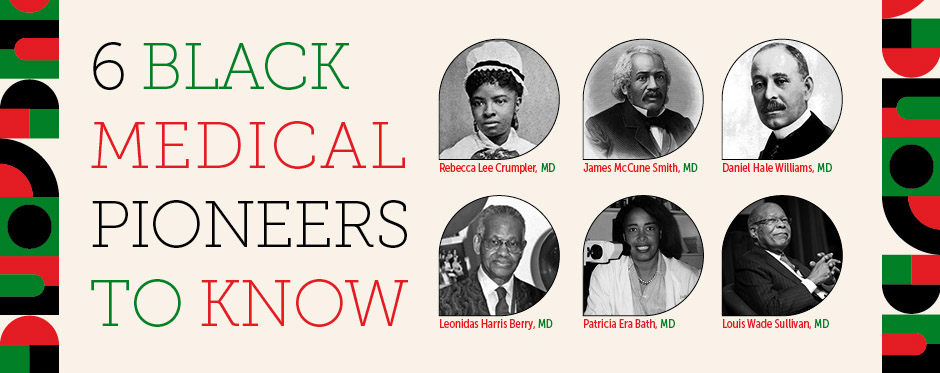
This Black History Month, The Oregon Clinic is proud to celebrate the incredible accomplishments and lasting impact of Black pioneers in American medicine. These men and women were champions of equality whose achievements have helped shape modern medicine as we know it today.
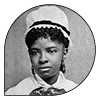 Rebecca Lee Crumpler, MD (1831 — 1895)
Rebecca Lee Crumpler, MD (1831 — 1895)
In 1864—during the Civil War—Dr. Rebecca Lee Crumpler became the first Black woman in the United State to earn a medical degree, at the New England Female Medical College in Boston. She was also their only Black graduate. Dr. Crumpler went on to work with other Black doctors in Richmond, Virginia who provided care for formerly enslaved people in the Freedman’s Bureau. In 1883, she published a book titled A Book of Medical Discourses: In Two Parts, addressing children’s and women’s health.
 James McCune Smith, MD (1813 — 1865)
James McCune Smith, MD (1813 — 1865)
Dr. James McCune Smith was the first Black American to receive a medical degree, although he had to go to Glasgow, Scotland to do so. Upon returning to New York City after receiving his degree, Dr. Smith became the first Black American to own a pharmacy in the US. He was also the first Black physician to be published in US medical journals, where he championed the use of medically based statistics to challenge racist notions of racial inferiority. Dr. Smith was also a prominent abolitionist and close friend of activist, author, and abolitionist leader Frederick Douglass, who he worked with to establish the National Council of the Colored People.
 Daniel Hale Williams (1856 – 1931)
Daniel Hale Williams (1856 – 1931)
Dr. Daniel Hale Williams was a general surgeon known for performing the first successful heart surgery in 1893. In 1891, Dr. Williams also founded the first Black-owned hospital in America, the Provident Hospital and Training School for Nurses where both Black and white physicians and nurses could study and receive training. He also worked with the Equal Rights League, a Black civil rights organization. In 1913, Dr. Williams was the first Black member inducted into the American College of Surgeons. Dr. Williams was dedicated to helping lead the next generation of Black physicians and nurses and expand medical education opportunities for Black students.
 Leonidas Harris Berry, MD (1902 — 1995)
Leonidas Harris Berry, MD (1902 — 1995)
Dr. Leonidas Berry was a world-renowned gastroenterologist and pioneer in endoscopy who dedicated his career to bringing medical care to Black communities in Chicago. Dr. Berry chaired a Chicago commission that worked to make hospitals more inclusive for Black physicians and to increase facilities in underserved parts of the city. He was also one of the first Black doctors to be admitted to the American Medical Association and was president of the National Medical Association from 1965 to 1966. Dr. Berry was also an inventor who devised a new gastroscopic instrument.
 Patricia Era Bath, MD (1942 – 2019)
Patricia Era Bath, MD (1942 – 2019)
In 1973, Dr. Patricia Bath became the first Black American to complete an ophthalmology residency. In 1976, she co-founded the American Institute for the Prevention of Blindness and was an advocate for improving inequities in vision care throughout her career. In 1983, Dr. Bath was the first woman to be appointed chair of ophthalmology at a US medical school, at the University of California, Los Angeles David Geffen School of Medicine. In 1988, Dr. Bath became the first Black female physician to receive a medical patent for the Laserphaco Probe, a device used to create a less painful and more precise treatment for cataracts.
 Louis Wade Sullivan, MD (b. 1933)
Louis Wade Sullivan, MD (b. 1933)
Dr. Louis Wade Sullivan is a leader in modern health policy. In 1975, he became the Founding Dean of Morehouse School of Medicine, the only predominantly Black medical school in the US established in the 20th Century. From 1989 to 1993, Dr. Sullivan was appointed US Secretary of Health and Human Services under President George H.W. Bush. After his tenure, Dr. Sullivan returned to Morehouse School of Medicine to serve as two-time dean and president until 2002. Dr. Sullivan has chaired and co-chaired numerous influential institutions, including the President’s Advisory Council on Historically Black Colleges and Universities and the President’s Commission on HIV and AIDS. He is the founder of the Sullivan Alliance, an organization dedicated to increasing racial and ethnic minority representation in healthcare. He has also served on the boards of several national corporations and is the recipient of more than 70 honorary degrees.
Source: Association of American Medical Colleges
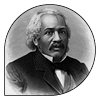 James McCune Smith, MD (1813 — 1865)
James McCune Smith, MD (1813 — 1865)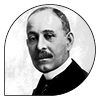 Daniel Hale Williams (1856 – 1931)
Daniel Hale Williams (1856 – 1931)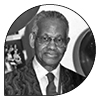 Leonidas Harris Berry, MD (1902 — 1995)
Leonidas Harris Berry, MD (1902 — 1995) Patricia Era Bath, MD (1942 – 2019)
Patricia Era Bath, MD (1942 – 2019)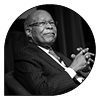 Louis Wade Sullivan, MD (b. 1933)
Louis Wade Sullivan, MD (b. 1933)